This Is What Those Mysterious Creaks in Your House Really Mean
Find out which of those noises you can't afford to ignore.
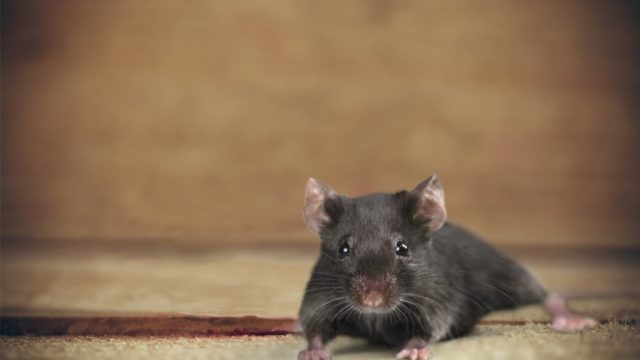
Whether it's a rattle, screech, or ominous creak, we've all found ourselves confronted with an unfamiliar sound in our home in the middle of the night. And while your mind may conjure up a host of horror movie endings when those noises arise out of nowhere, in most cases, it's just your house itself creating that cacophony. The only problem? Those bumps in the night might indicate something scary is actually wrong with your home.
So, read on to find out what those noises in your home really mean—and how to remedy what's causing them. And for more ways to get handier around the house, check out these 40 Easy Home Maintenance Tasks You Should Do Yourself After 40.
1
Your floorboards are loose.
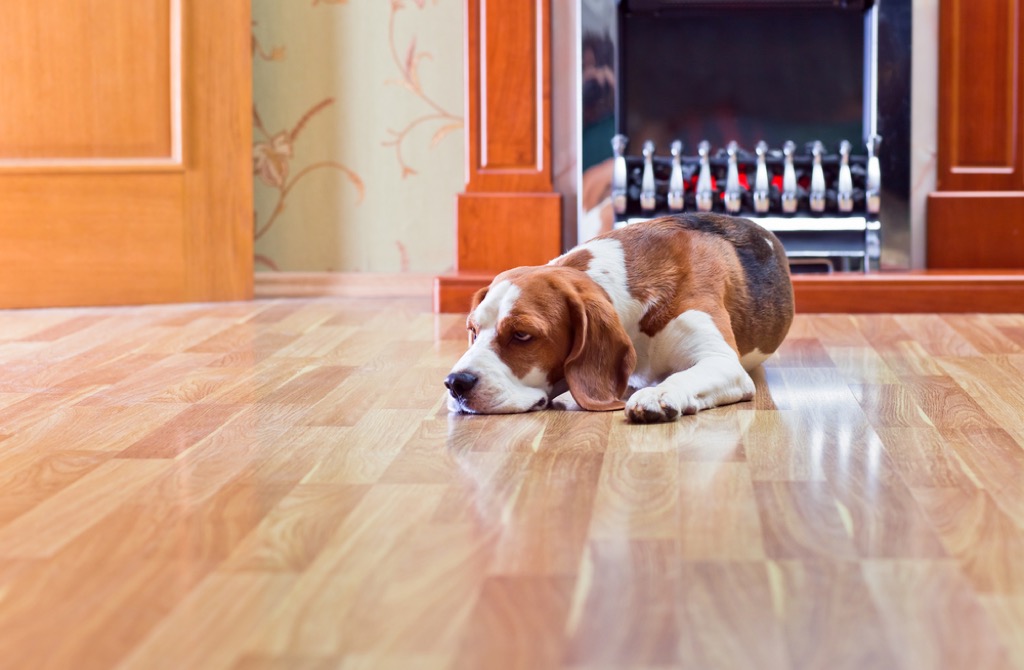
The main cause of a creaky home is, without a doubt, the floor. "In old houses, boards have expanded, contracted, and dried over the life of the floor. And through that process, there becomes space between the nail and the board," says Jamie Hamill, president of The Hudson Company, a specialty flooring mill in New York's Hudson Valley. "The squeaking sound you hear is the board moving up and down against the fastener, or moving up and down against another board."
Unpleasant noises can also occur when the floorboards are not properly attached to the sub-flooring below them. The good news? In most cases, this doesn't mean your floorboards need to be ripped out. But to mitigate the noise, you might want to have a professional secure them.
2
You have problems with your foundation.
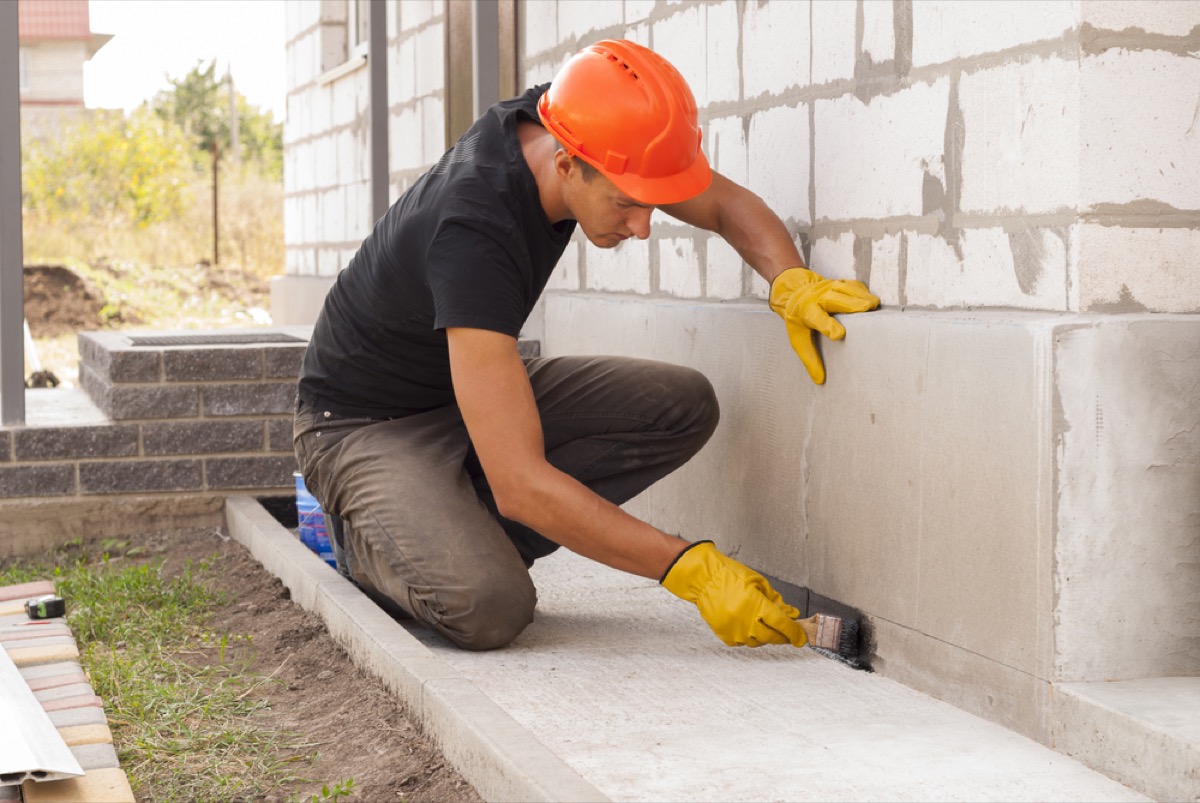
Those deep groans that seem to be coming from underneath your home could be something serious. When a home's foundation begins to falter—whether due to improper construction, water damage, soil erosion, or other factors—it can produce loud groaning or popping noises as the materials crack or sink into the ground below it.
And it's not just older homes that have foundation issues. In 2016, for example, a group of Connecticut homeowners filed suit against their insurance companies for denying claims related to their homes' collapsing foundations, all of which had been poured in the past 36 years.
3
Your boiler isn't lighting.

While foundation issues are frequently the cause of loud noises in your home's lower levels, your boiler could also be to blame. If you hear groaning, pinging, or whistling sounds coming from your boiler, or if you've been having trouble with your heat or hot water, it could be a sign that your burner's not igniting properly.
If your boiler is hooked up to a gas line, this failure to light could cause a gas leak, potentially setting you up for a fire, explosion, or carbon monoxide poisoning if left unchecked. So this is an issue that definitely needs professional attention.
4
You have mice in your walls.
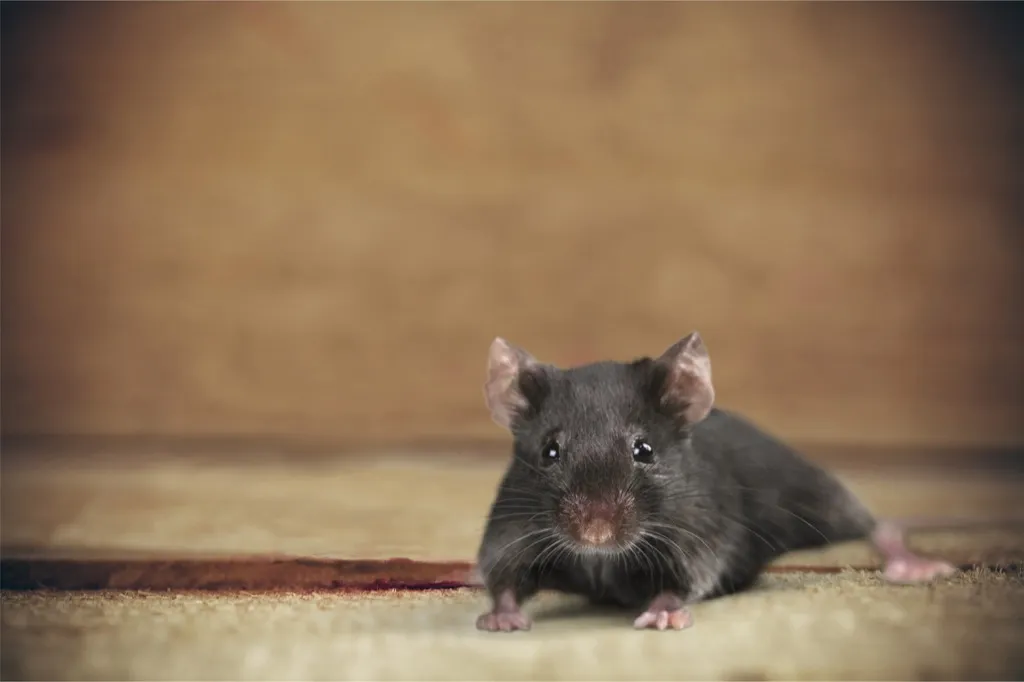
Those loud scratching, creaking, and scurrying sounds coming from behind your walls could be the result of a pest no bigger than your palm. "The volume of the noise that you hear can be very misleading. The mouse that's chewing on your framing will be a lot louder than a squirrel that's running along your insulation," says state-licensed nuisance wildlife control operator Matt Osinskie, co-owner of Hudson Valley Wildlife Solutions in New York. To determine what kind of pest you have, "what you need to look for is time, duration, and frequency," Osinskie says.
"The time of day or night will dictate if it's a nocturnal or diurnal creature. Duration is important because squirrels will chew on your walls for hours at a time, trying to get from one point to another, but mice will be more erratic in their timing and will chew for a shorter duration," Osinskie notes. "And regarding frequency, if you're hearing the noise every day at the same time in the same area, that tends to be a squirrel or a nesting bird. Mice tend to be inconsistent—you'll hear them for two minutes or 20 minutes, sometimes during the day, sometimes at night."
5
Your pipes need securing.
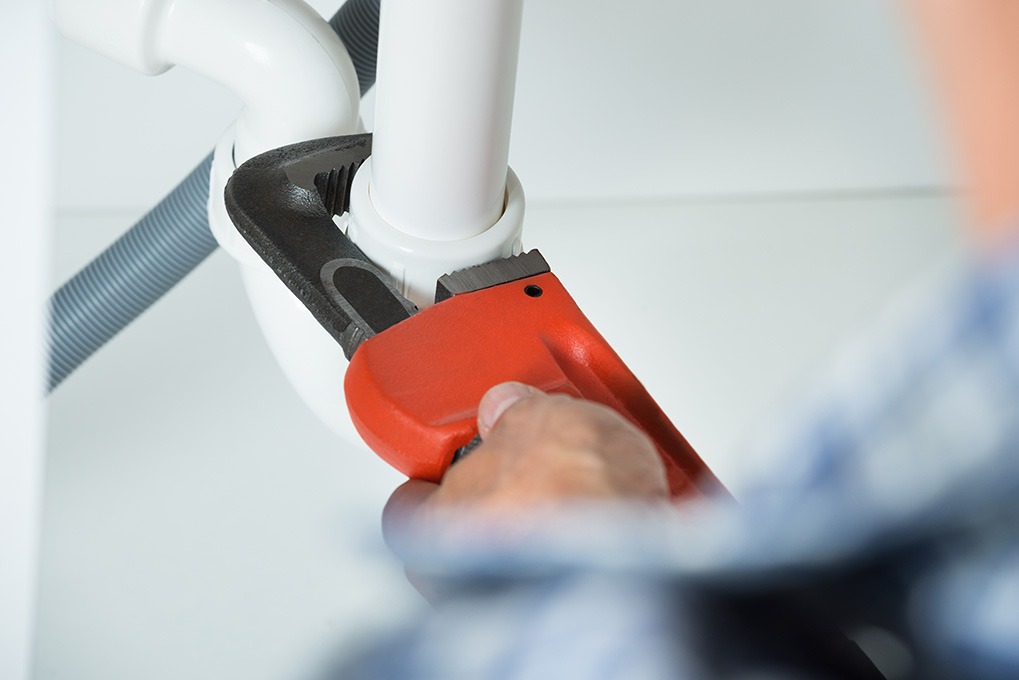
While scratching behind your walls might indicate a pest problem, that banging sound coming from under your drywall is something else entirely. "Especially if it's a hot pipe, it can make a pinging sound when it shuts off," explains Rick Ingersoll, owner of Thomas Harkins Plumbing and Heating in Hudson, New York. "When you shut the water off, the pipes bang because they're not secured properly in the walls. It could just be a faucet that makes it bang where the water shuts off."
Unfortunately, if your pipes are banging because they're loose, it might be an expensive fix. "Normally, the pipe has to be secured better in a wall with a bracket to hold it," Ingersoll says. And that often means a plumber will have to cut into your walls.
6
Your gutters are being used as on-ramps for pests.
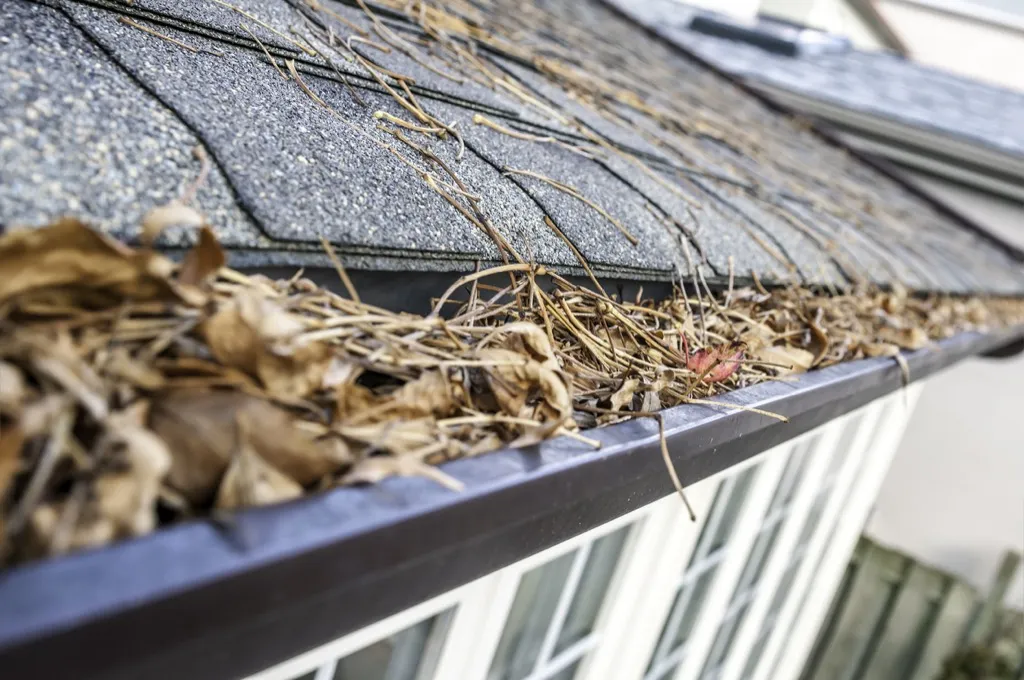
That creaking sound coming from outside your home is a sign that your gutters are being used as an access point for pests to come inside. It's usually the metal making noise as animals bend and pull it away from your house.
"Gutters can be utilized as a platform to sit on. Animals then chew through soffits and fascias to get into the house," says Osinskie. Birds like starlings and sparrows are also common culprits when it comes to gutter noise, he notes. Osinskie frequently finds nests behind or underneath gutters, where they're better protected.
7
You have a loose electrical connection.
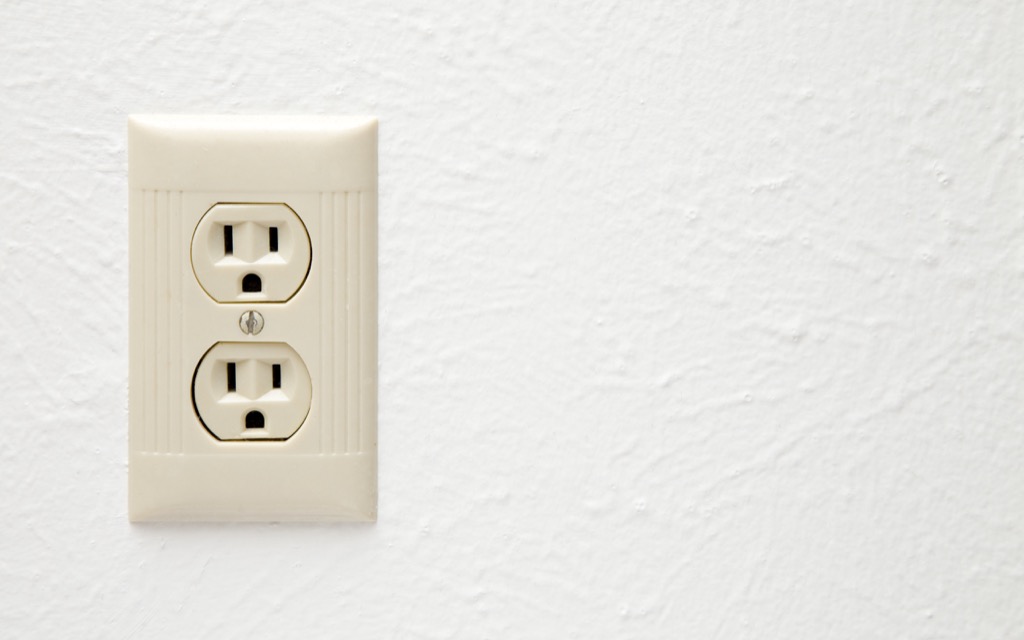
Those buzzing noises you hear throughout your home shouldn't go unchecked—particularly if you hear it behind your walls, in close proximity to an outlet, or coming from an appliance. A buzzing sound could mean that there's a loose electrical connection, which could put you at risk for a house fire if those loose wires spark.
However, in some cases, there's a less-perilous explanation for that noise. "Bats kind of buzz," says Osinskie. "The vocalization that bats make almost sounds like an electrical noise, so people will frequently think they're having an issue with their electricity."
8
Your toilet's fill valve needs replacing.
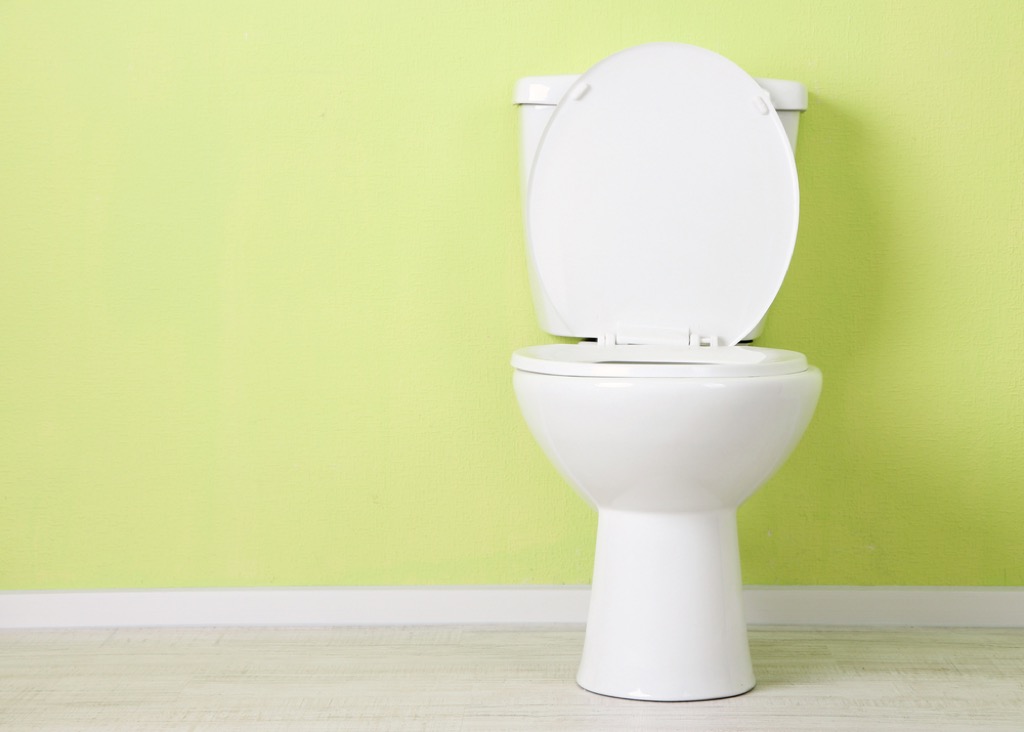
That whistle you hear when you flush your toilet means it's time to get to your local hardware store for a new fill valve. "It whistles just before it shuts off and needs to be replaced," says Ingersoll. "Sometimes it gets a little dirt in it and it's sticky, so before it shuts off, it makes a little squeal sound."
The good news? It's not a very expensive part to replace, usually costing $12 to $18.
9
Your hinges could use some lubrication.
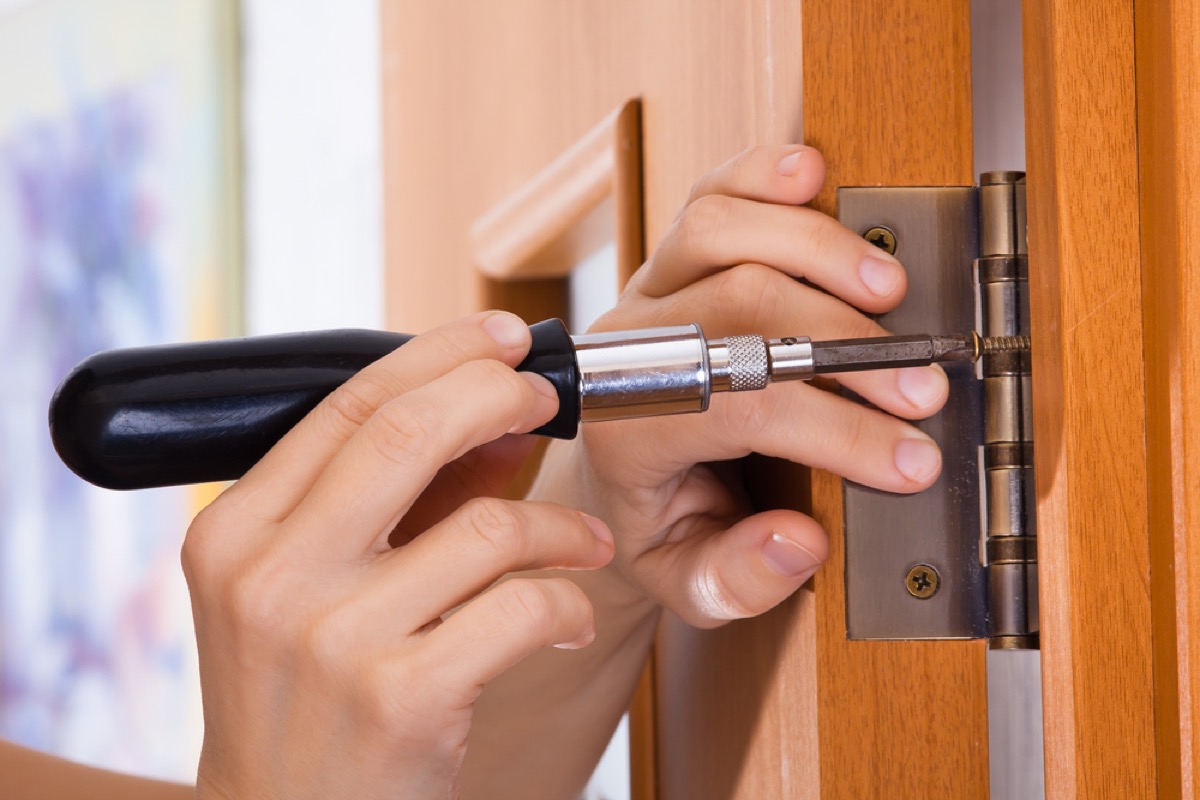
That loud squeaking sound coming from your door hinges is often because of wear and tear over time or changes in alignment due to the natural settling of your house.
But squeaky hinges have a relatively easy and inexpensive solution: Loosen the hinge pins, liberally apply some lubricant, and screw them back in. Then they'll be silent once more! And for more ways to keep your home looking like a million bucks, check out these 20 Home Maintenance Tips Everyone Should Know.
To discover more amazing secrets about living your best life, click here to follow us on Instagram!





















